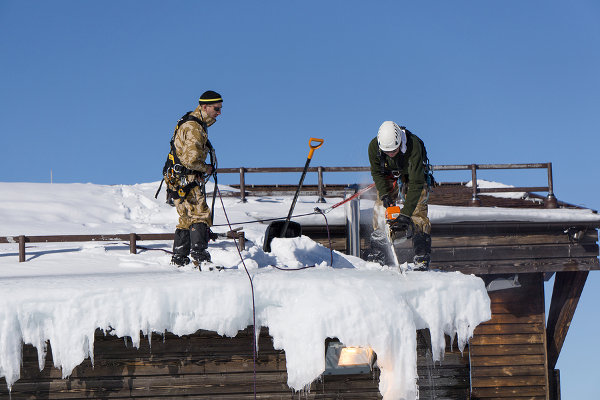Preventing Hypothermia

Hypothermia is a lowering of the body's core temperature, commonly caused by getting wet and chilled. As the body temperature drops, damage to the vital organs such as the brain can occur.
Hypothermia can be fatal, so it is important to avoid these conditions and get prompt medical help if it develops.
These are some symptoms of hypothermia: Chills, shivering, confusion, loss of co-ordination, inability to speak clearly and irrational behavior. The victim can lose consciousness, indicating a serious case of hypothermia.
The way to prevent hypothermia is to stay warm and dry:
Dress warmly but wear layers so you can take clothing on and off as conditions change. Too much clothing can make you sweaty, setting the stage for chills.
Keep your head covered because a significant amount of body heat can be lost from the head. If you need a hardhat liner for warmth in the winter, make sure it is approved for use with your hardhat so it does not interfere with protection.
The combination of wet and cold is particularly dangerous, so carry extra clothing including socks and gloves if there is any chance yours will get wet.
Falling into water can be quickly fatal in winter. Even in summer, hypothermia can occur after immersion in cold water.
Keep moving when you are outdoors in cold weather. Head for someplace warm and dry for your rest breaks.
Be aware of the symptoms of hypothermia and watch for them in yourself and your co-workers. If symptoms develop, get to a warm, and dry place right away. Call for medical help immediately if symptoms are serious.
Drinking alcohol can make you more susceptible to hypothermia, so avoid this when you are outdoors in the cold.
Beware of hypothermia during your recreational pursuits. Try not to get wet when you are out skiing, ice fishing or snowmobiling.